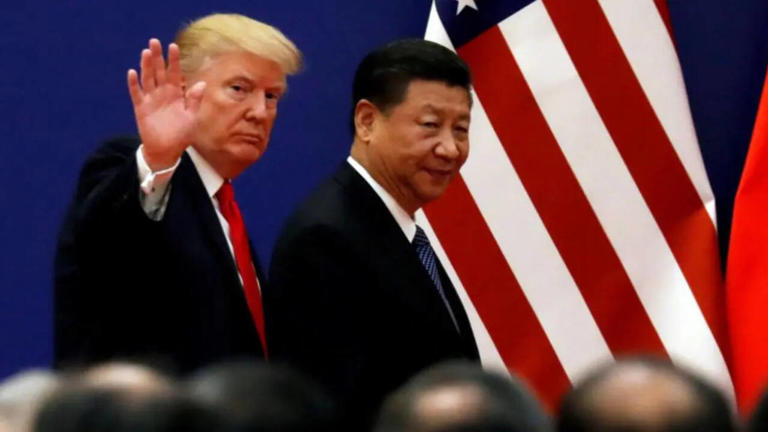China Strikes Back with 84% Tariff After Trump Imposes 104% Duty on Chinese Imports
In a dramatic escalation of the ongoing US-China trade conflict, Beijing has announced a sweeping 84% tariff on American imports, a retaliatory measure following US President Donald Trump’s decision to impose a staggering 104% cumulative tariff on Chinese goods. The announcement, reported by the Associated Press, marks a significant intensification in trade tensions between the world’s two largest economies, signaling a full-blown tariff war with far-reaching global implications.
The latest move by China, which comes into effect from April 10, reflects its strong stance against what it terms as “unilateral and hostile” economic actions by the United States. The tariffs, which cover a wide range of American products, were confirmed by China’s Ministry of Finance, while the Ministry of Commerce simultaneously revealed a crackdown on US firms by adding 12 American companies to its export control list. Additionally, six major US enterprises have now been designated as part of China’s “unreliable entity” list, a measure that could restrict their operations in the Chinese market and further strain business relations.
The tariff escalation traces back to February, when the Trump administration first introduced a 10% tariff on Chinese goods, citing China’s alleged involvement in the global fentanyl trade as a primary concern. This was followed by another 10% hike in March. Then, in a move branded as “reciprocal,” Washington added a 34% duty last week, directly blaming Chinese trade practices. Just days later, Trump shocked global markets by imposing an additional 50% tariff, raising the cumulative total to an unprecedented 104%.
Beijing had earlier warned that it would not remain passive in the face of aggressive economic maneuvers. The 84% tariff is a calculated response designed not only to counteract the financial impact of US duties but also to assert China’s economic sovereignty on the world stage. Chinese authorities have stated they are prepared to “defend its economic interests at all costs,” a message that underscores the seriousness of the current standoff.
This tit-for-tat tariff exchange has already begun to rattle financial markets worldwide, prompting concerns over supply chain disruptions, increased consumer prices, and declining investor confidence. Analysts warn that continued escalation could plunge global trade into a state of prolonged instability, affecting industries from technology and automotive to agriculture and pharmaceuticals. Businesses in both nations now face a new reality of economic uncertainty, while policymakers scramble to contain the fallout.
As the global economy watches closely, it remains to be seen whether diplomatic dialogue can halt the spiral of protectionism that now threatens to redefine international trade norms. The world is witnessing not just a trade dispute but a broader geopolitical showdown that could shape economic relations for years to come.
For video news and in-depth analysis, visit our YouTube channel THE OLIGO.

